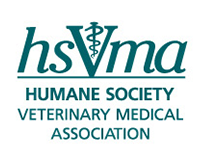HSVMA Applauds Agreement to Pass Federal Law Addressing Egg-Laying Hen WelfareJuly 8, 2011 The Humane Society Veterinary Medical Association applauds news of an agreement reached between The Humane Society of the United States and the United Egg Producers to jointly push for federal legislation to substantially improve the welfare of the 280 million laying hens used each year in U.S. egg production. The legislation would tackle key welfare issues including requiring more living space and environmental enrichment for hens, banning forced molting by starvation, and requiring euthanasia standards. HSVMA extends its appreciation to all the individual veterinarians who have joined with the organization in recent years in endorsing state legislation and ballot initiatives tackling the issue of farm animal welfare, including for hens confined in barren battery cages. “As leaders in the animal health and welfare field, veterinary endorsement has been critical in building public support for these state efforts and in creating momentum for national farm animal welfare reform,” said Dr. Brad Evergreen, one of the lead veterinary endorsers of this year’s Washington ballot initiative to address the welfare of egg-laying hens and an HSVMA Leadership Council member. “The veterinarians who supported the state initiatives should be proud of the role they’ve played in driving forward this historic agreement,” said Dr. Kristin Sulis, chief co-petitioner for a similar Oregon ballot initiative on egg-laying hens and an HSVMA member. “The veterinary profession can now look forward to helping enact federal reform inclusive of all 280 million laying hens used each year for egg production in this country.” Key examples of veterinary support for farm animal welfare reform include the more than 700 California veterinarians who joined with the California Veterinary Medical Association and the HSVMA in 2008 in endorsing California’s successful Proposition 2, which called for more living space for egg-laying hens, breeding sows and calves raised for veal. More recently, nearly 90 veterinarians endorsed I-1130, the Washington ballot measure to address the welfare of egg-laying hens, and veterinary endorsements had begun for a similar ballot measure recently filed in Oregon and planned for 2012. In light of the recent agreement to pursue a national policy, the Washington and Oregon ballot measures have been put on hold. Some of the reforms proposed for the federal legislation would be implemented immediately after enactment, such as those relating to molting and euthanasia. Others, such as the provisions banning barren battery cages and requiring more living space, would be phased in over the next 15 to 18 years. In recognition of the passage of Proposition 2, California’s egg producers would be required to implement reforms by 2015, the date by which Proposition 2 is scheduled to take effect. Read more about the historic agreement reached between The Humane Society of the United States and the United Egg Producers. |
